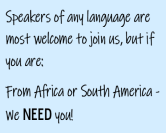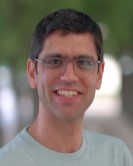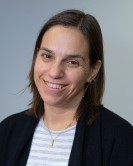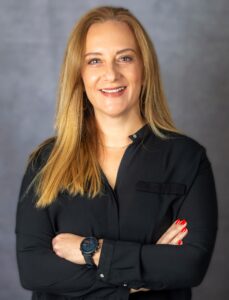Привет, Merhaba, Hola, Olá, Bonjour, Hallo, 你好, こんにちは, नमस्ते, 안녕하세요
The abundance of online information, especially scientific content, provides tremendous potential to help people make more informed decisions as individuals and as a society. Search engines are not only a major gateway to information nowadays, but also a critical tool for students and citizens alike to learn about science and make use of it in their everyday life, all over the world. Yet, there is little empirical evidence of the quality, veracity, credibility, and comprehensiveness of information that search engines provide in response to scientific queries. Moreover, it is unclear how the quality of information varies across cultures and languages. While early studies of the internet emphasized its egalitarian potential to promote equality of access to information and upward social mobility as a result of it, we are now increasingly aware of the capacity of information systems to internalize bias, and sometimes even perpetuate it. Despite the importance of science, science communication, and search engines as the gateway to information, no prior work had systematically evaluated the quality of information offered by search engines for scientific queries in different countries and languages.
In this project, we are launching a large-scale algorithmic audit of Google Search, and use a mixed-methods approach to study the quality of results in different countries and languages. The audit will issue a set of carefully curated scientific queries to Google Search in multiple languages, emulate their execution from different countries, and collect their search results over time. Our queries are selected to represent both theory- and data-driven approaches on a global scale, including searches for canonical scientific concepts from a globally representee science curriculum (e.g. organism, atom), socio-scientific issues from United Nations Sustainable Development Goals (e.g. climate change, food security), emerging science topics from the top scientific journals annual summaries (e.g. CRISPR, mars), scientific conspiracy theories (e.g. vaccines cause autism, earth is flat) and frequently-viewed STEM entries in Wikipedia (e.g. standard deviation). Quality assessment of search results will be based on both quantitative and qualitative measures of quality, including scientific quality, pedagogical quality, source of origin, and recency.

We need your help to map the quality of scientific information in as many countries and languages as possible! If you’d like to contribute and have passion for science – please get in touch. Contact Roni Shapira Roni.Shapira@campus.technion.ac.il

Prof. Ayelet Baram-Tsabari,
Head of the Applied Science Communication research group
Technion – Israel Institute of Technology, Israel

Dr. Nir Grinberg
Head of the Socially Embedded Lab
Department of Software and Information Systems Engineering,
Ben-Gurion University, Israel

Ph.D Student Shakked Dabran
Applied Science Communication research group
Technion – Israel Institute of Technology

M.Sc. Student Roni Shapira
Applied Science Communication research group
Technion – Israel Institute of Technology

Miri Yitshaki
Msc Student in Artificial Intelligence
Department of Software and Information Systems Engineering,
Ben Gurion University Socially Embedded Lab research group
תודה, Thank you, شكرا, Спасибо, Teşekkürler, Gracias, Obrigado, Merci, Danke, 謝謝, ありがとう, धन्यवाद, 감사